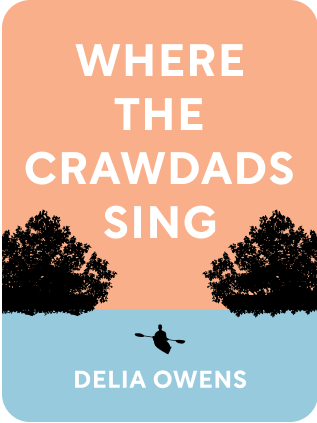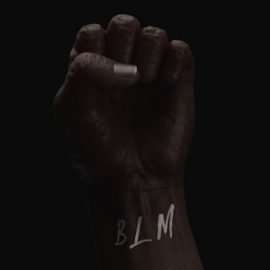

This article is an excerpt from the Shortform summary of "Where the Crawdads Sing" by Delia Owens. Shortform has the world's best summaries of books you should be reading.
Like this article? Sign up for a free trial here .
What is a biased jury? How can a biased jury affect a trial, and are there examples of this in books?
In Where the Crawdads Sing, Kya is an outsider. The townspeople are afraid of her and her isolated life in the marsh. So when Kya is accused of the murder of a beloved boy in town, she and her lawyers fear that a biased jury will put her freedom at risk. See how a biased jury can alter a case–even in fiction.
The Biased Jury and The Case Against Marsh Girl
A few days before Christmas, Kya motored toward Jumpin’s before dawn. She was more cautious than usual, had been ever since the sheriff and deputy had started coming to her shack. When she got close enough, she could make out Jumpin’ on his chair near the store. She waved as she normally did, but Jumpin’ didn’t move or say a word. After a second, he gave the slightest shake of his head. Kya slowed the boat, turned quickly, and headed back to her shack. Appearing out of the fog were several boats, one with the sheriff at the helm.
Kya tried to lose the boats by heading out to sea. But there was no time. The boats surrounded her, and two officers jumped into her boat and detained her. Deputy Purdue said she was under arrest for the murder of Chase Andrews and read her her rights.
Kya was held in custody in the town’s holding cells for two months. On February 25, 1970, she was led into a courtroom in handcuffs with her lawyer Tom Milton by her side. Tom had taken over for the public defender after reading about Kya’s arrest. He was from the area and had heard stories about the Marsh Girl over the years. He took her case pro bono, coming out of retirement at seventy-one.
The courtroom was packed to the rafters with townspeople, everyone wanting a chance to witness the Marsh Girl in handcuffs, a possible death sentence looming over her head. Kya didn’t look at anyone as she took her place behind the defendant’s table.
Jury selection started after the presiding judge, Judge Sims, announced that Tom’s motion to have the trial moved for bias was denied. The judge turned to two rows of jurors and asked if they would have a problem sentencing Kya to death. No one raised their hands.
Kya recognized most of the jurors from town but didn’t know their names. Two, however, she knew: Sally Culpepper, the truant officer from Kya’s youth, and the preacher’s wife, who’d rushed her little girl away the night Kya and Pa ate at the diner. All the jurors agreed to not be biased.
Hearing about her possible death made Kya’s breath catch. It wasn’t that she was afraid to die. She was afraid of dying by appointment at the hand of someone else. She’d never relied on anyone for anything, but the thought that her freedom would be hijacked at the last moment of her life terrified her.
Was There a Biased Jury?
A few days before Christmas, Kya motored toward Jumpin’s before dawn. She was more cautious than usual, had been ever since the sheriff and deputy had started coming to her shack. When she got close enough, she could make out Jumpin’ on his chair near the store. She waved as she normally did, but Jumpin’ didn’t move or say a word. After a second, he gave the slightest shake of his head. Kya slowed the boat, turned quickly, and headed back to her shack. Appearing out of the fog were several boats, one with the sheriff at the helm.
Kya tried to lose the boats by heading out to sea. But there was no time. The boats surrounded her, and two officers jumped into her boat and detained her. Deputy Purdue said she was under arrest for the murder of Chase Andrews and read her her rights.
Kya was held in custody in the town’s holding cells for two months. On February 25, 1970, she was led into a courtroom in handcuffs with her lawyer Tom Milton by her side. Tom had taken over for the public defender after reading about Kya’s arrest. He was from the area and had heard stories about the Marsh Girl over the years. He took her case pro bono, coming out of retirement at seventy-one.
The courtroom was packed to the rafters with townspeople, everyone wanting a chance to witness the Marsh Girl in handcuffs, a possible death sentence looming over her head. Kya didn’t look at anyone as she took her place behind the defendant’s table.
Jury selection started after the presiding judge, Judge Sims, announced that Tom’s motion to have the trial moved for bias was denied. The judge turned to two rows of jurors and asked if they would have a problem sentencing Kya to death. No one raised their hands. Immediately, Kya feared that this was a biased jury.
Kya recognized most of the jurors from town but didn’t know their names. Two, however, she knew: Sally Culpepper, the truant officer from Kya’s youth, and the preacher’s wife, who’d rushed her little girl away the night Kya and Pa ate at the diner. All the jurors agreed to not be biased.
Hearing about her possible death made Kya’s breath catch. It wasn’t that she was afraid to die. She was afraid of dying by appointment at the hand of someone else. She’d never relied on anyone for anything, but the thought that her freedom would be hijacked at the last moment of her life terrified her.
The Jury’s Verdict
Kya’s supporters, including Scupper, who’d shown up in court a few days earlier to support his son, were impatient for the verdict. Tom told them he couldn’t predict how long the biased jury would deliberate or what their verdict would be but reminded them that even with a guilty verdict, the fight wasn’t over.
The jury asked for documents twice. The first was the bus drivers’ transcripts. The second was the coroner’s transcript. The hours dragged, and as her support team sat unsettled, so did Kya in her cell. She had lived a life of loneliness, but waiting for the verdict created a sensation like she’d never known. Thinking of never seeing her beautiful marsh again made her feel more alone than before.
At four o’clock the same day, the jury had a decision. Tom delivered the news with a solemn expression. A verdict this fast didn’t bode well for Kya. The townspeople clustered back into the courtroom, which was at capacity within ten minutes.
Judge Sims asked Kya to rise. Jumpin’ and Mabel clasped hands. Tate leaned as far as he could toward Kya’s back. The energy in the room had shifted from before. The salivating eagerness of community to condemn Kya was gone. Now, most people stared at the floor. Tom’s words had shown them their folly.
When the verdict of not guilty echoed through the breathless courtroom, everyone had different reactions. Kya’s supporters gasped with relief, cried, and hugged. Other’s comforted a sobbing Patty Love. Some grew angry, demanding an explanation and pointing the finger at the ineptitude of Sheriff Jackson. Others showed a similar disappointment, but inside, they were overjoyed. These few included Mrs. Singletary, Mrs. Culpepper, and Pansy Price. Soon, the roar died down, and people left the courthouse to return to their regular lives.
Luckily, the biased jury at Kya’s trial didn’t convict her. Many people believed Kya murdered Chase. Others, including those on the biased jury, believed that the sheriff had acted rashly based on his prejudice for marsh girl. Either way, this example in Where the Crawdads sing shows the high stakes possibilities of a biased jury.

———End of Preview———
Like what you just read? Read the rest of the world's best summary of Delia Owens's "Where the Crawdads Sing" at Shortform .
Here's what you'll find in our full Where the Crawdads Sing summary :
- How Kya Clark's abandonment as a child affected her through her entire life
- How Kya discovered love despite steep obstacles
- The murder trial that embroiled Kya's town, and the ultimate truth behind the murder






